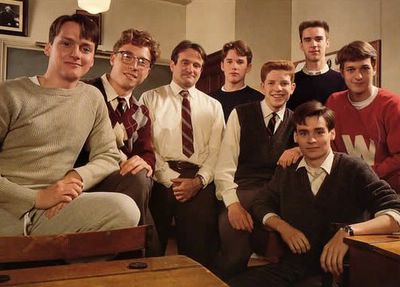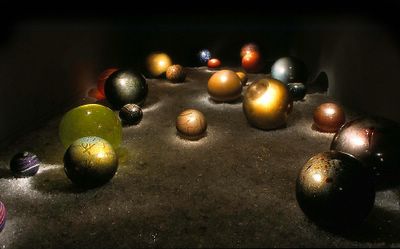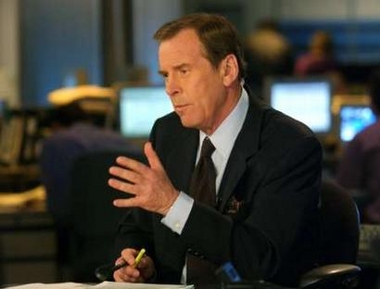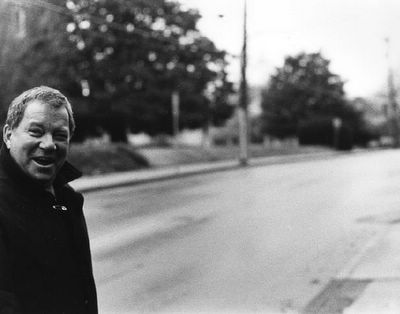The Desert Disc Game
This blog is devoted to the Desert Disc Game. But first, an editorial rant (please scroll down for the game if you’re not in a ranting and raving mood!):
Hollywood is in a slump.
Each week, it seems, the news is bringing us stories of declining attendance at movie theaters. Tickets sales have plummeted to more than half a billion dollars less than this time in 2004. Pundits have given numerous reasons for the decline, including the high cost of tickets and concessions, the proliferation of movie commercials and ads, frustration with impolite audiences and the complaint that movies simply aren't as good as they used to be.
I agree with all of those observations. It costs far too much to see a movie these days, and while I have no choice than to pay the price of admission, I very rarely “go all the way” with a Coke and popcorn. Sadly, it is through concessions that movie houses make their money (80% of ticket sales go back to the studios) which has forced theater chains to run advertisements. While an entertainment reporter at the Colorado Springs Gazette, I did a large story on this very issue and discovered that patrons, and even some theater managers, have had enough of paying to watch advertisements.
More and more, people are willing to skip the big screen in order to watch the movie on DVD in the comfort and control of their own homes. Now, there is no way that I’d rather watch a movie on even the most elaborate home theater system over watching it on the big screen. Unless…I know that the small child in the R rated film behind me won’t stop whining or kicking my chair, the guy in front of me feels the need to carry on a running commentary and the teenager beside me keeps bathing my row in bright blue light every time she checks the latest cell phone text message from her friends…then, I might see the allure.
And yet, there is something more to this than simple economics 101 and public etiquette.
Movies these days simply aren’t as good (at least not those coming out of the Hollywood juggernaut system; independent and foreign cinema is an entirely different story). Now I don’t mean they’re not as good in the way that the fundamentalist next to me in Sunday school does, though he certainly may have a point. While films these days may certainly have a sort of moral laxness about them, I am referring more to the craft itself. Artistically speaking, most of what greats us when the lights dim and the projector revs to life is, quite frankly, sub-par.
But I think it is deeper even than that. The fault, you see, rests with you and I, the average John Q. Moviegoer. (I am admittedly snobby enough to not, in fact, consider myself an average movie-goer. If you are reading this blog, feel free to include yourself in that category as well)! Hollywood feeds what the starving audience demands and so long as that audience demands trite and drivel, that is exactly what they will be forced to consume. The sad truth is, people are watching bad movies more often than good ones. Don’t believe me? Jump over to Rotten Tomatoes, a website that complies critical and lay reviews, and see what’s making the money. More often the not, the films to which the site and all of those who frequent it have given rotten rating are the very same ones that topped the weekend’s box-office. So long as movie-goers are willing to spend money on movies like Deuce Bigalow: European Gigolo, Dukes of Hazzard, and The Island (sorry, I am of the Jerry-Bruckheimer-and-Michael-Bay-should-be-deported-to-Mongolia camp) Hollywood will keep making them. A buck's a buck.
Ok, I could go on, but that’s rant enough for today.
THE DESERT DISC GAME
All this sour discussion has put me in a sort of playful mood. I was recently asked to play the Desert Disc Game and I thought it might be enjoyable to pass on the fun. You know the game; if you were stranded all alone on a desert island, what ten movies would you want with you, and why?
This is of course naturally assuming that this deserted island is fortuitously stocked with a TV and a DVD player to say nothing of an electricity source. Maybe you built them out of spare parts from coconut husks and clam shells.
For the purpose of counting, and just because I don't feel like restricting myself, I'm going to count trilogies as a single package, so that my Lord of the Rings trilogy, for example, counts as one film.
If you don't like that, find your own island.
Will these desert disks be on this list a decade from now? Hell, I can't even guarantee they'll be on here a week from now. Even as I look at my list, I am aghast that I have left certain films off. This isn’t the same thing, necessarily, as your top ten favorite films—just ten you’d be inclined to grab for a weekend getaway someplace, absolutely unaware that the plane in which you are going to fly will lose a propeller somewhere over a French Polynesian island chain and bury itself in a palm-shaded sand bank leaving you as the sole survivor.
After you’ve seen my list, why don’t you post a comment with your ten choices. (Cast Away, anyone?!) I have this theory that you can tell a lot about a person by the kinds of films they cherish.
And now, my list…
1. Lawrence of Arabia:

When the word “epic” was invented for use in the English language, it was done so expressly for this film. The astonishing story of T. E. Lawrence, a British officer who leads an Arab revolt against Turkey during World War I is so well acted, so visually rich and so exquisitely scored as to guarantee it a place in the pantheon of the greatest motion pictures of all time. It also happens to be my favorite film of all time!
2. Citizen Kane:

What can be said about Citizen Kane that has not already been said? It is a masterpiece in every conceivable definition of the word. A film that is just as visually stunning, technically innovative and profoundly narrative as the day it was first shown. The story of Charles Foster Kane’s empty and agonizing rise to power is one of the greatest stories ever put to film.
3. The Lord of the Rings trilogy:

My generation’s Star Wars, LOTR is a staggering achievement. It is a swashbuckling adventure that at once transcends the genre even while reinventing it. In the same way that Tolkien wrote his masterpiece to imbue Great Britain with a sort of long lost mythology, so too are these movies bestowing that same gift upon us.
4. Dead Poet's Society:

There are certain films that get under your skin and never come out. You cannot turn them on without finding yourself profoundly moved. They change your life, subtly altering your perceptions of reality. Dead Poet's Society is one of those few films.
5. Lost in Translation:

This is an intensely personal film suffused with an exquisite emotional resonance that rings true in every frame. Lost in Translation is a painfully moving, hypnotic poem that is both sweet and sad, sardonic and funny. As a tender and layered piece of art, it is fragile, delicate, luminous, and contains so many shots of breathtaking beauty that it reenergized my faith in the magic of cinema and in the power of human connection.
6. Dark City:

Dark City owes much of its imagery to Fritz Lang’s silent masterpiece, Metropolis and in the process, creates one of the greatest science fiction films of our time. John Murdoch awakes in a city plunged in eternal night, not knowing his identity nor why mysterious men hunt his every move. Atmospheric and textured with surprises around every corner.
7. A Man for all Seasons:

Paul Scofield is Sir Thomas More, a highly respected English statesman who would rather sacrifice his life than betray his conscience or his God in this inspirational and stirring adaptation of Robert Bolt’s play.
8. The Lion in Winter:

Peter O’Toole chews up the scenery as King Henry II and Katherine Hepburn rages as Queen Eleanor of Aquitaine in this film about three sons’ struggle to win their father’s favor and his crown.
9. Snow Falling on Cedars:

An exquisite film with cinematography that takes one’s breath away. The story of a small town’s trial of a Japanese man in post WWII Washington state is told with haunting flashbacks, lyrical recitation and a dazzling score. Max von Sydow takes his place beside Gregory Peck with the film’s closing arguments.
10. The Village:

Using the idea of an isolated village as a gorgeous metaphor for the dangers of control through fear, noble deception for “good,” the overriding power of myth, and the ugliness just under the veneer of a supposed utopia, The Village is one of the most misunderstood and unappreciated films of our time.
OK, your turn…
Hollywood is in a slump.
Each week, it seems, the news is bringing us stories of declining attendance at movie theaters. Tickets sales have plummeted to more than half a billion dollars less than this time in 2004. Pundits have given numerous reasons for the decline, including the high cost of tickets and concessions, the proliferation of movie commercials and ads, frustration with impolite audiences and the complaint that movies simply aren't as good as they used to be.
I agree with all of those observations. It costs far too much to see a movie these days, and while I have no choice than to pay the price of admission, I very rarely “go all the way” with a Coke and popcorn. Sadly, it is through concessions that movie houses make their money (80% of ticket sales go back to the studios) which has forced theater chains to run advertisements. While an entertainment reporter at the Colorado Springs Gazette, I did a large story on this very issue and discovered that patrons, and even some theater managers, have had enough of paying to watch advertisements.
More and more, people are willing to skip the big screen in order to watch the movie on DVD in the comfort and control of their own homes. Now, there is no way that I’d rather watch a movie on even the most elaborate home theater system over watching it on the big screen. Unless…I know that the small child in the R rated film behind me won’t stop whining or kicking my chair, the guy in front of me feels the need to carry on a running commentary and the teenager beside me keeps bathing my row in bright blue light every time she checks the latest cell phone text message from her friends…then, I might see the allure.
And yet, there is something more to this than simple economics 101 and public etiquette.
Movies these days simply aren’t as good (at least not those coming out of the Hollywood juggernaut system; independent and foreign cinema is an entirely different story). Now I don’t mean they’re not as good in the way that the fundamentalist next to me in Sunday school does, though he certainly may have a point. While films these days may certainly have a sort of moral laxness about them, I am referring more to the craft itself. Artistically speaking, most of what greats us when the lights dim and the projector revs to life is, quite frankly, sub-par.
But I think it is deeper even than that. The fault, you see, rests with you and I, the average John Q. Moviegoer. (I am admittedly snobby enough to not, in fact, consider myself an average movie-goer. If you are reading this blog, feel free to include yourself in that category as well)! Hollywood feeds what the starving audience demands and so long as that audience demands trite and drivel, that is exactly what they will be forced to consume. The sad truth is, people are watching bad movies more often than good ones. Don’t believe me? Jump over to Rotten Tomatoes, a website that complies critical and lay reviews, and see what’s making the money. More often the not, the films to which the site and all of those who frequent it have given rotten rating are the very same ones that topped the weekend’s box-office. So long as movie-goers are willing to spend money on movies like Deuce Bigalow: European Gigolo, Dukes of Hazzard, and The Island (sorry, I am of the Jerry-Bruckheimer-and-Michael-Bay-should-be-deported-to-Mongolia camp) Hollywood will keep making them. A buck's a buck.
Ok, I could go on, but that’s rant enough for today.
THE DESERT DISC GAME
All this sour discussion has put me in a sort of playful mood. I was recently asked to play the Desert Disc Game and I thought it might be enjoyable to pass on the fun. You know the game; if you were stranded all alone on a desert island, what ten movies would you want with you, and why?
This is of course naturally assuming that this deserted island is fortuitously stocked with a TV and a DVD player to say nothing of an electricity source. Maybe you built them out of spare parts from coconut husks and clam shells.
For the purpose of counting, and just because I don't feel like restricting myself, I'm going to count trilogies as a single package, so that my Lord of the Rings trilogy, for example, counts as one film.
If you don't like that, find your own island.
Will these desert disks be on this list a decade from now? Hell, I can't even guarantee they'll be on here a week from now. Even as I look at my list, I am aghast that I have left certain films off. This isn’t the same thing, necessarily, as your top ten favorite films—just ten you’d be inclined to grab for a weekend getaway someplace, absolutely unaware that the plane in which you are going to fly will lose a propeller somewhere over a French Polynesian island chain and bury itself in a palm-shaded sand bank leaving you as the sole survivor.
After you’ve seen my list, why don’t you post a comment with your ten choices. (Cast Away, anyone?!) I have this theory that you can tell a lot about a person by the kinds of films they cherish.
And now, my list…
1. Lawrence of Arabia:

When the word “epic” was invented for use in the English language, it was done so expressly for this film. The astonishing story of T. E. Lawrence, a British officer who leads an Arab revolt against Turkey during World War I is so well acted, so visually rich and so exquisitely scored as to guarantee it a place in the pantheon of the greatest motion pictures of all time. It also happens to be my favorite film of all time!
2. Citizen Kane:

What can be said about Citizen Kane that has not already been said? It is a masterpiece in every conceivable definition of the word. A film that is just as visually stunning, technically innovative and profoundly narrative as the day it was first shown. The story of Charles Foster Kane’s empty and agonizing rise to power is one of the greatest stories ever put to film.
3. The Lord of the Rings trilogy:

My generation’s Star Wars, LOTR is a staggering achievement. It is a swashbuckling adventure that at once transcends the genre even while reinventing it. In the same way that Tolkien wrote his masterpiece to imbue Great Britain with a sort of long lost mythology, so too are these movies bestowing that same gift upon us.
4. Dead Poet's Society:

There are certain films that get under your skin and never come out. You cannot turn them on without finding yourself profoundly moved. They change your life, subtly altering your perceptions of reality. Dead Poet's Society is one of those few films.
5. Lost in Translation:

This is an intensely personal film suffused with an exquisite emotional resonance that rings true in every frame. Lost in Translation is a painfully moving, hypnotic poem that is both sweet and sad, sardonic and funny. As a tender and layered piece of art, it is fragile, delicate, luminous, and contains so many shots of breathtaking beauty that it reenergized my faith in the magic of cinema and in the power of human connection.
6. Dark City:

Dark City owes much of its imagery to Fritz Lang’s silent masterpiece, Metropolis and in the process, creates one of the greatest science fiction films of our time. John Murdoch awakes in a city plunged in eternal night, not knowing his identity nor why mysterious men hunt his every move. Atmospheric and textured with surprises around every corner.
7. A Man for all Seasons:

Paul Scofield is Sir Thomas More, a highly respected English statesman who would rather sacrifice his life than betray his conscience or his God in this inspirational and stirring adaptation of Robert Bolt’s play.
8. The Lion in Winter:

Peter O’Toole chews up the scenery as King Henry II and Katherine Hepburn rages as Queen Eleanor of Aquitaine in this film about three sons’ struggle to win their father’s favor and his crown.
9. Snow Falling on Cedars:

An exquisite film with cinematography that takes one’s breath away. The story of a small town’s trial of a Japanese man in post WWII Washington state is told with haunting flashbacks, lyrical recitation and a dazzling score. Max von Sydow takes his place beside Gregory Peck with the film’s closing arguments.
10. The Village:

Using the idea of an isolated village as a gorgeous metaphor for the dangers of control through fear, noble deception for “good,” the overriding power of myth, and the ugliness just under the veneer of a supposed utopia, The Village is one of the most misunderstood and unappreciated films of our time.
OK, your turn…











